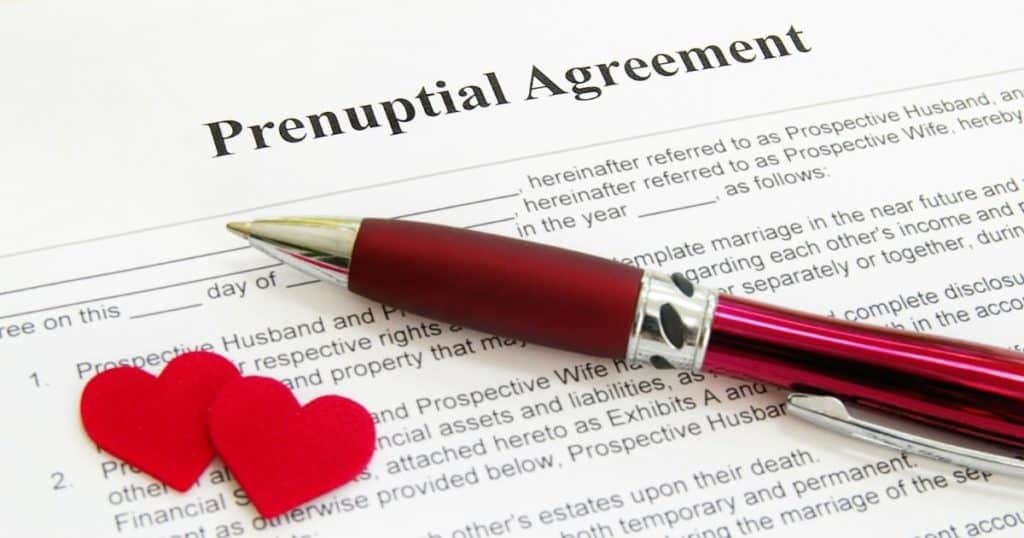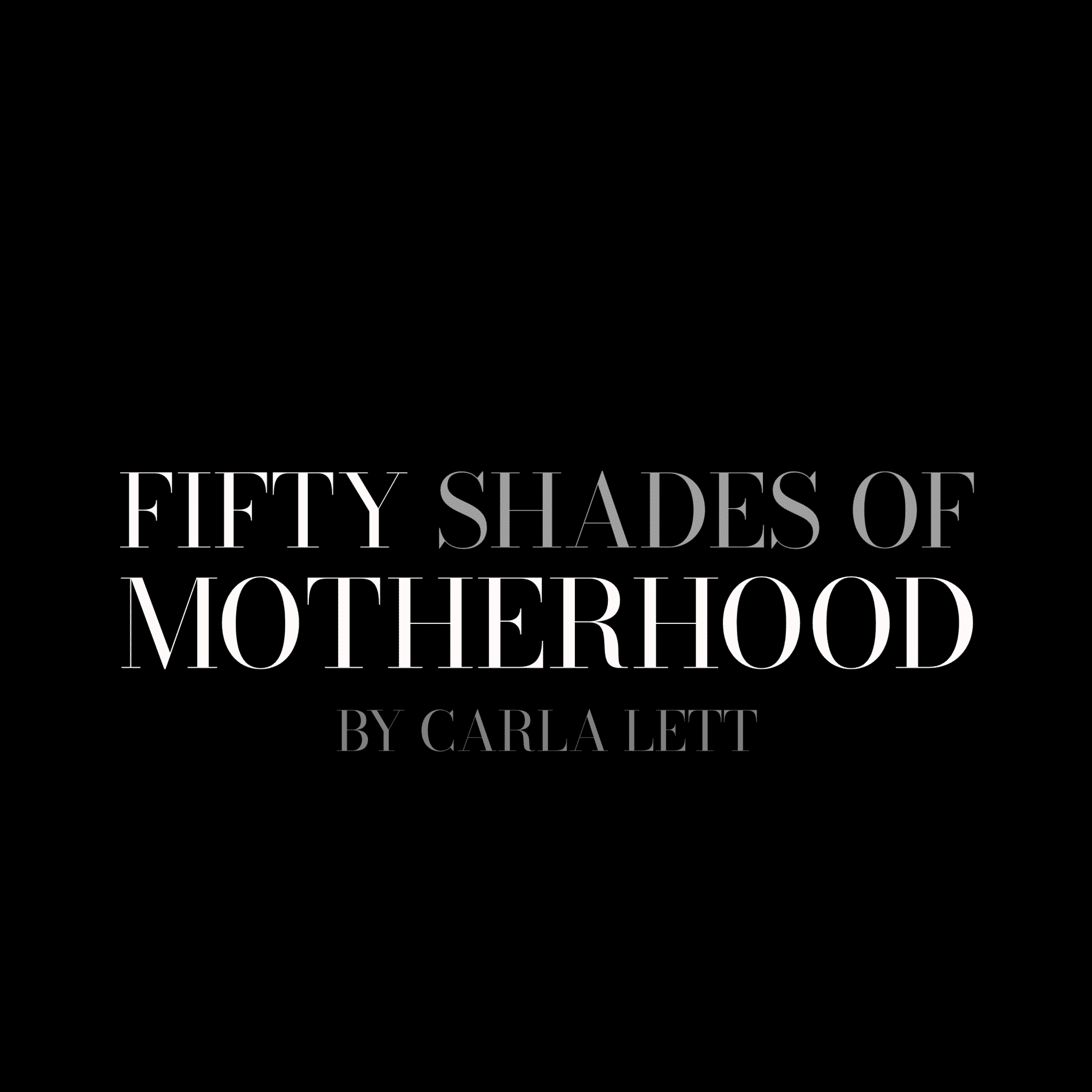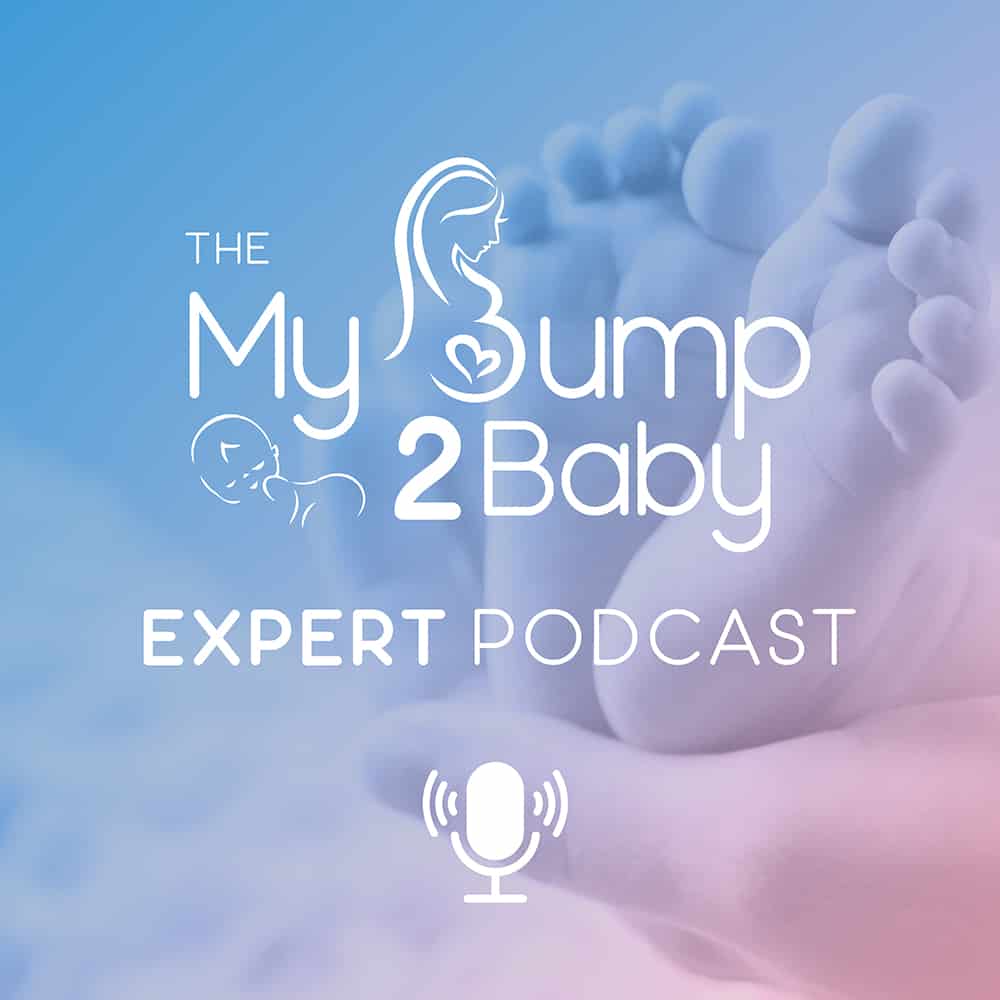- Everything you need to know about Prenuptial Agreements
In today’s podcast Carla Lett speaks with Eve Geere Senior Associate for Parfitt Cresswell.
Eve answers and discusses all your questions about prenuptial agreements including postnuptial agreements too and the reason people should consider them.
They discuss about what a prenup actually is, what can be covered in a prenup, why people use them, why it is important to seek legal advice plus so much more.
Bio: https://www.parfittcresswell.com/solicitor/eve-geere
Article on Pre-Nuptial Agreements: https://www.parfittcresswell.com/blog/family-bulletin-10-nuptial-agreements
[00:00:00] Carla: My Bump 2 Baby is one of the UKs leading parenting platforms. You can find local pregnancy to preschool groups, classes, and lessons, wherever you are in the UK. Not only that, but you can read our honest reviews on the latest products, days out and services that you as parents need to know about. We also work with trusted financial advisors, family law, solicitors, and now estate agents, too.
[00:00:33] If you would like to find your nearest, trusted expert, head over to www.mybump2baby.com.
[00:00:46] Are you a parent looking to start a small business, perhaps you’ve no idea where to start? Or maybe you’ve already got a small business and you’re struggling to take it to that next level. My Bump 2 Baby is here to support you.
[00:01:03] My Bump 2 Baby Business offers training packages, mentorship programs, one-to-one support, and e-courses, if you would like more information on how to grow your business with my bumps baby. Then email us. Our email address is [email protected].
[00:01:35] Hello, and welcome to My Bump 2 Baby’s Expert podcast, where we bring experts from all over the UK to answer your questions on everything, pregnancy to preschool.
[00:01:58] Today, we are talking all about prenuptial agreements. Today I am joined by Eve Geere, a senior associate from Parfitt Cresswell, and she is going to be sharing her knowledge with us on prenuptial agreements. And hopefully she answers all your questions.
[00:02:21] Hello everybody. And welcome to My Bump 2 Baby’s Expert podcast. Today, we are talking all about prenuptial agreements and I am joined by the lovely Eve Geere, a senior associate from Parfitt Cresswell. How are you doing?
[00:02:36] Eve: I’m well, thank you.
[00:02:38] Carla: Good. I’m very excited to speak to about this subject because I imagine it’s a bit of a mind field for some people.
[00:02:45] Eve: It certainly can be. Yes.
[00:02:47] Carla: So Eve, can you just tell us a little bit more about you when and what you do for Parfitt Cresswell?
[00:02:53] Eve: Yeah, certainly. So I am a solicitor in the family department. I’m a senior associate, so I conduct work in the family field exclusively. So it’s really anything associated with the family home. I advise clients on divorce and separation. Any children matters, parties that aren’t married or in a civil partnership, but perhaps living together. So co-habitation issues and also I assist clients in relation to injunctions. So if there is any domestic abuse situations, I can assist clients applying to the court to get the protection that they need.
[00:03:38] Carla: Oh, that’s fantastic. That’s fantastic. Cause I know there’s a lot of talk around domestic abuse at the moment and the different aspects of it. I know there’s um, it’s not just kind of physical is it? There’s a lot of different, different options, but I, I suppose that will be saved for another podcast that we can talk about.
[00:03:57] So today, we are going to touch on a prenuptial agreements. So can you just tell us a little bit more about what a prenuptial agreement actually is?
[00:04:05] Eve: Yes. So put very simply a prenuptial agreement, an agreement entered into by two parties ahead of their marriage or civil partnership, which sets out their financial assets and in the unfortunate event that their marriage or civil partnership ends, it sets out exactly how they intend to divide these assets.
[00:04:30] Carla: So they almost agree it before the actual, before that happens, hopefully it won’t happen, but, but then it covers, it covers them both, I suppose, should the worst happen?
[00:04:41] Eve: Absolutely. It’s almost like an insurance policy. It’s a form of relationship planning. So you hope, of course, when you’re entering into a marriage that nothing is going to go wrong, you’re going to be together forever. But as you and I both know, that’s not always the case for everyone. So it’s just like a form of insurance, really, just in case the worst happens, it will set out exactly what the party’s intentions were at the outset of their marriage.
[00:05:09] Carla: That’s brilliant. That’s a great explanation. So what actually can be covered then in a prenup?
[00:05:15] Eve: So typically it will set out the assets of the parties and the assets can be property in this country or abroad, um, typically a couple share a home together. So that would be known as the family home, but they may have other investment properties as well.
[00:05:34] It would set out their pensions and possibly their income and record if they were to, um, divorce or, dissolve their civil partnership, what would happen in those circumstances. And, um, it’s, it’s advisable to try and plan for possible eventuality, such as if the parties are intending of having children. And so you might want to, um, when drafting a prenuptial agreement, I would want to introduce, um, sort of a review clause to, to take account of certain important events and possibly, um, if it’s not the birth of any children and the couple aren’t intending to have children, maybe just have a review clause at maybe five-year intervals, because of course the parties circumstances may change throughout the life of that marriage. So it’s quite a good idea to keep the agreement as fresh as possible.
[00:06:33] Carla: Of course. Yeah. Because you circumstances are always changing aren’t they throughout your marriage. So that, that does make sense. So why. I mean, why do most people use them then? Is it from previous bad experiences or?
[00:06:47] Eve: Yeah, so it could be exactly that they could’ve been married before and had a particularly difficult separation and divorce, but often people will use prenups to say safeguard, inheritances. Possibly they’ve already received a significant inheritance or they are anticipating a significant inheritance. And they want to safeguard that it might be that one or both parties has business interests that were acquired prior to the marriage. And they want to ring fence those as well.
[00:07:24] Um, so it’s, it’s really, um, I think that parties that perhaps enter a relationship with a similar level of assets probably wouldn’t think about a prenuptial agreement, but if there is a significant disparity, then it’s more common for parties to be thinking about protecting assets that they bought in. And particularly if they are considerably more than the other party.
[00:07:51] Carla: That makes a lot of sense. And sometimes do you find the people who have been married before, like what we said then, but they’ve got their own children. Maybe they’re not going to have children in the future. Would that be something that they use, you know, um, just to protect the children from, from?
[00:08:09] Eve: Yes, that’s absolutely right. I mean, obviously it’s advisable for parties to have wills in place. This is like another layer of protection because the starting point, if you divorce in this jurisdiction, there are factors which may affect this. But starting point typically is an equalization so a 50/50 split.
[00:08:29] So you can see that if a party has perhaps been widowed or they have separated before and they have property and assets in their previous relationship, they want to safeguard their children. This would be an ideal way of doing so.
[00:08:46] Carla: That’s brilliant. Yeah, I did wonder about that. That’s great. So it’s another level of protection like you, you nicely put there. So how common are prenuptial agreements in the UK? Are they getting more common?
[00:08:59] Eve: Yes. So they are certainly becoming more common. There was an important case known as Radmacher, which was decided by the Supreme court in 2010. And before that time, I think there was definitely a reluctance by the court to recognize prenuptial agreements. There was some case law which supported agreements that were fairly and properly entered into between parties. But this particular case, which was quite heavily reported changed the landscape, certainly for family lawyers. And basically just in a nutshell, that case was concerned with a German heiress and a French national husband, and they entered into a prenup four months before they married. And even though the prenup wasn’t translated into English for the parcel to the husband, it was still upheld by the court as one of the circumstance, the court should have regard to. The parties were basically, they were similar ages and they went on to have two children. Uh, I think they married in 1998. But they separated eight years later. And at the start of the marriage the husband was working at JP Morgan. And was earning a fairly significant sum, but the purpose behind the prenup was actually to protect the German heiress and her inheritance that she’d already received and her wealth that she anticipated receieving in the future, um, and the court felt that actually in that circumstance, because both parties knew, what they were enterting into, it was proper um, the agreement to be upheld. The only, um, matter to raise in that regard was it didn’t make provison for the parties two children’s. So they’d gone on to have two children. And so there was an adjustment by the court to take account of the children needs.
[00:10:54] But basically the Supreme court set out in that case, quite helpfully, how much an agreement should be treated. And they said that the court should give effect to a nuptial agreement that is freely entered into, by each party with a full appreciation of its implications. Unless in the circumstances prevailing, it would not be fair to hold the parties to their agreement.
[00:11:20] So that case was so important. And the recommendation was that really, um, the agreement needs to be shown to be freely entered into. So obviously there shouldn’t be any pressure or duress either side. And I think that in that case, and they were suggesting at least 21 days ahead of the marriage, the agreement should be entered into. The law commission has gone on to say their recommendation would be 28 days ahead of their marriage.
[00:11:51] But my advice would be to anyone thinking about having prenup, give yourself as much time as possible before you actually marry. So before the date of the marriage. Because what you want to do is we can’t say, these agreements are absolutely 100% binding, but if both parties have entered into the agreements freely, they’ve said, I dunno maybe two or three months ahead of the marriage thinking about entering into the agreement, they have taken legal advice and both parties know what assets and income the other party has.
[00:12:31] I think there’s a very good chance of court upholding that agreement. If any of those elements haven’t been thought about. So one of the parties hasn’t sought legal advise, or they haven’t shared their financial disclosure. There is a reason then potentially that the court may not uphold that agreement.
[00:12:52] So basically you want to do whatever you have to give the court as much power as possible to make the agreement and to not think actually, oh gosh, is this agreement not fair? Um, and as far as possible, we want to think about having, like I said before a review clause, just to revisit the agreement at certain key events, um, to then against the court and argument, um, the court says, you know, the disagreement doesn’t seem to be fair. The parties have reviewed it quite regularly. It would be much harder for the court to say that.
[00:13:25] Carla: Yeah. Yeah, that makes sense. Gosh. Wow. That was, that’s quite, um, quite a lot of information there that makes. No but it really does make sense. So why then would you say it’s important to seek legal advice when entering the prenup?
[00:13:40] Eve: It’s mainly just to show that the parties are on a level playing field. So that one party is not influencing the other. And if both parties have gone to independent legal advisors and had proper independent advice themselves. Again, it’s going to be much harder for the court not to uphold it. The court wants to uphold these agreements and if you, both, both parties go and see independent solicitors. That’s sort of one of the boxes ticked if you like. The court can be satisfied. Yes. This party knew ahead of executing the agreement. Absolutely what they were signing up to.
[00:14:18] Carla: That’s brilliant. Brilliant. So, so w when I suppose we’ve covered this a little bit, but just to be a bit clearer, when can you enter into a prenup then?
[00:14:29] Eve: So a prenup would be entered into before a couple decide to marry, or to enter into civil partnership. If a couple are getting a little bit close to the date of the wedding, it’s still possible for them to enter into a prenup, but it may be advisable for the parties once they’re married. Also think about a post-nuptial agreement.
[00:14:52] So, um, that is, that can mirror entirely the terms of the prenup. Um, but it’s just to safeguard against these arguments that I’ve just raised about there being any pressure or duress. Cause you want to be able to say to the court look, um, you know, we absolutely knew what we were signing up to and if it was on the eve of the wedding, much better to have another agreement after the marriage, recording exactly what they’ve signed up to, but demonstrating to the court that either once they were married, this is absolutely how they want to deal with their assets. In the unfortunate event, their marriage does break down.
[00:15:29] Carla: Yeah. Yeah. Cause I can imagine like the eve of a wedding when you’ve got everyone there, your dress is hanging up. You get a text from your partner about, uh, you know, a pre-nuptial agreement. You know, of course you’re going to be more inclined to kind of go with it. So, uh, a post one just kind of, I suppose it, I see what you mean in regards to the court, looking at it and saying, well, actually, you know, they have discussed it after the event as well
[00:15:57] Eve: Yeah absolutely because the court’s going to be looking at the emotional state of the parties, their ages and their understand, understanding of the agreement. and their respective financial circumstances. The court really just wants to be satisfied. They both really understand what’s going on. One party is not pressurizing the other party. They’re freely entering into it. Um, and in that circumstance, the parties have a very good chance of having the agreement up held.
[00:16:25] Carla: That’s great. That’s great. So, so with pre-nuptial agreements, then are they legally binding as such then?
[00:16:33] Eve: So they’re not, only in as much as it takes, really for you to obtain a decree absolute and a financial order approved by the court for it to be binding. So whilst a prenuptial agreement is a good insurance policy because it’s impossible for parties to crystal ball gaze entirely, and there maybe circumstances which come up, which the parties don’t expect.
[00:17:04] The court still has to retain its discretion to look at all the circumstances of the case upon a relationship breakdown. So I think that if the parties enter, go through the steps we’ve just talked about. So enter into the agreement as far ahead of the wedding as they possible can, disclose their assets, income and liabilites, get independent legal advice, and basically show the court that they’ve done everything within a timely manner. They ticked all the boxes and it’s likely the court due to uphold it. But if the agreement hasn’t taken account of, let’s say children being born. The court is always going to prioritize the needs of any children and needs basically gasumps all. So the agreement fundamentally has to be fair. So if the agreement is not held to be fair, then the court won’t honor it.
[00:18:01] So it’s better to have a prenup than not. And it’s important that you go through all of those steps, but we can’t say yes, absolutely it’s concrete. Because there are certain circumstances that might happen that the parties can’t foresee that the court is going to want to take account of in any final resolution with their finances.
[00:18:21] Carla: Yeah, that that makes a lot of sense. So, so in regards to the postnups, um, just a bit further details on those. If you were five, 10 years down into your relationship and you were going to come into quite a large inheritance, um, could you at that point, even if you’ve never had a prenup, then say, you know, I don’t know how the conversation would go with your partner, but could you get a postnup at that point?
[00:18:50] Eve: Yes, absolutely. You get a postnup at any time in post-marriage or civil partnerships certainly. And obviously the other party needs to be in agreement, but there’s no reason why they wouldn’t be. And safeguarding inheritances is a very common reason why parties might think about it. I mean, obviously if the other party is unwilling to enter into a postnup. There’s not a great deal that can be done about that. But its certainly something that if both parties are on board with why not get one absolutely.
[00:19:25] Carla: Brilliant. That’s really good to know. So we’ve covered, obviously you’d review your prenup and your postnup and at different stages. Um, so. Can you challenge your prenup? Um, you know, at a later date, if you did come to split up and you have kind of, um, say you’ve done these every five years, you’ve reviewed your prenup or your postnup. Um, could you then say you did split up? Could you challenge what, what you’ve already kind of put down?
[00:19:55] Eve: Yes. You, you can, um, even in this case of Radmacher that we were just talking about, that’s basically what the husband was doing. And because in that case, their circumstances had changed. They’ve gone on to have two children. The court agreed with the husband in that prespect that actually he needed more money just to support him as a father. Um, so, so again, in that circumstance that the husband was challenging saying that, um, the agreement didn’t cover him. It wasn’t sufficient to meet his needs as a father. And, and they had the parties had a shared care arrangement in relation to the children. So a lot of the case law that I might see is, is parties actually challenging these agreements and saying to the judge, it’s not fair judge, because look, this has happened and that’s happened, which is why ideally as much as possible you review it as regularly as possible to avoid that happening because they aren’t, we can’t say they’re were a hundred percent binding.
[00:20:56] Carla: That’s great. I mean, if, if you doing the prenup or postnup, you could both just say to each other look, this is what we’re going to do every, so every, so many years. So it doesn’t come as a shock when the other person says, oh, it’s coming to that time again. This is just what you do. So.
[00:21:12] Eve: Absolutely, you can build it into the agreement and it might be that, actually their circumstances really haven’t changed. In which case you would still be best served to update the agreement. So at least the parties have thought about it. Has anything changed? Do we want to make any revisions? No. So you would still have a, perhaps a fresh agreement and redated so that, you know, it’s clear they have revisited it, but it doesn’t mean that the circumstances have necessarily changed. It’s just keeping it fresh.
[00:21:39] Carla: Yeah, that makes sense. And are that, any the options available that are like prenuptial agreement?
[00:21:45] Eve: So I mean, obviously not every couple marrying is going to have a prenuptial agreement. And like I said, in lots of circumstances, particularly if the parties have a similar amount of wealth, they’re not going to think about it.
[00:22:01] Um, but I suppose. Um, if a couple were thinking, well, actually, look, we’re not going to get married and we don’t want to enter into civil partnership, but we are going to live together, going to co-habit. It might be advisable for them to enter into a living together agreement, which again, it’s not binding, but it’s going to show. Um, what their intentions are at the outset of their relationship. And certainly if a co-habiting couple are purchasing a property together, for example, and one party might be putting in more of the deposit and so on, they might want to enter into the living together arrangement. They might also want to have a deed of trust or a declaration of trust to show that they hold the property together as tenants in common, but actually beneficially one party has more of an interest than the other party just to reflect the imbalance of the monies put into the property at the outset. So that’s just another way of, um, relationship planning. If you don’t want to, to marry or enter into a civil partnership.
[00:23:04] Carla: That’s brilliant. Goodness. You’ve answered so much. And I didn’t realize there was so much to it, but it sounds, it sounds quite simple as well, really, but once you’ve kind of covered everything, but that that’s great.
[00:23:18] So Eve, where would people find you then? Um, if they want to get in touch with you for more information on this particular subject, can they email you?
[00:23:27] Eve: They certainly can so I am soliciting like I’ve said for Parfitt Cresswell, and my office. My main office I work from is the Coleman solicitor’s office so thats Padackhall Chambers in Haywoods Heath.
[00:23:42] But my email address, if anyone wants to contact me is E G so my initials @Colemans-solicitors.com and my telephone number. If they want to speak to me is 01444 459 555.
[00:24:00] Carla: Thats amazing. Thank you so much for your time today, Eve that was really, really useful.
[00:24:05] Eve: No problem at all. Its a pleasure thank you.
[00:24:07] Carla: Thank you.
[00:24:09] Thank you for listening to My Bump 2 Baby’s Expert podcast. If you would like to find help and support from experts in your local area, head over to www.mybump2baby.com and you will also be able to find local pregnancy to preschool groups, classes, businesses, and services in your local.











